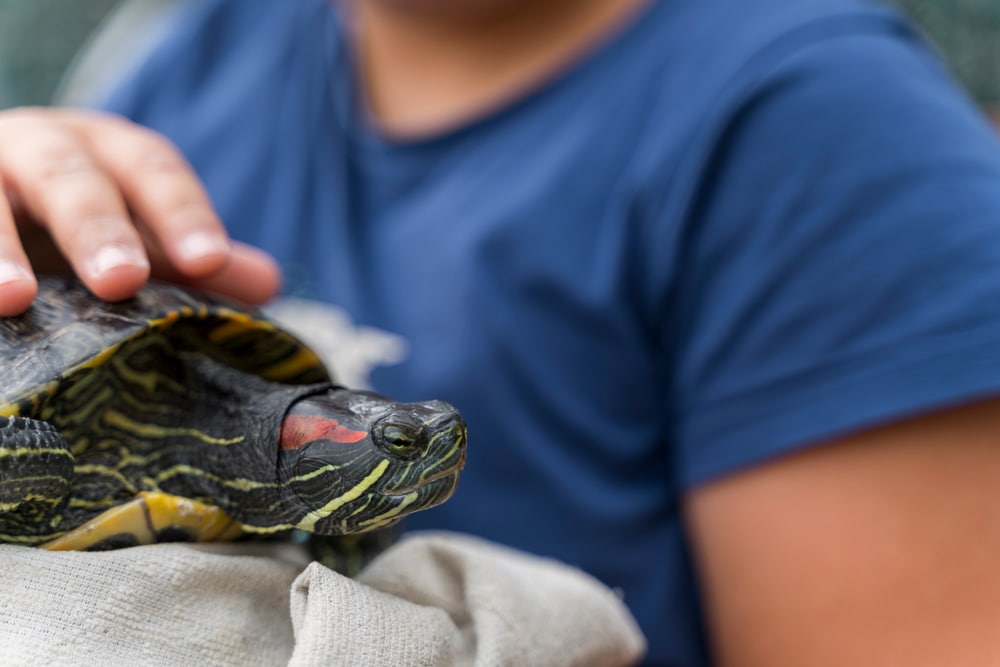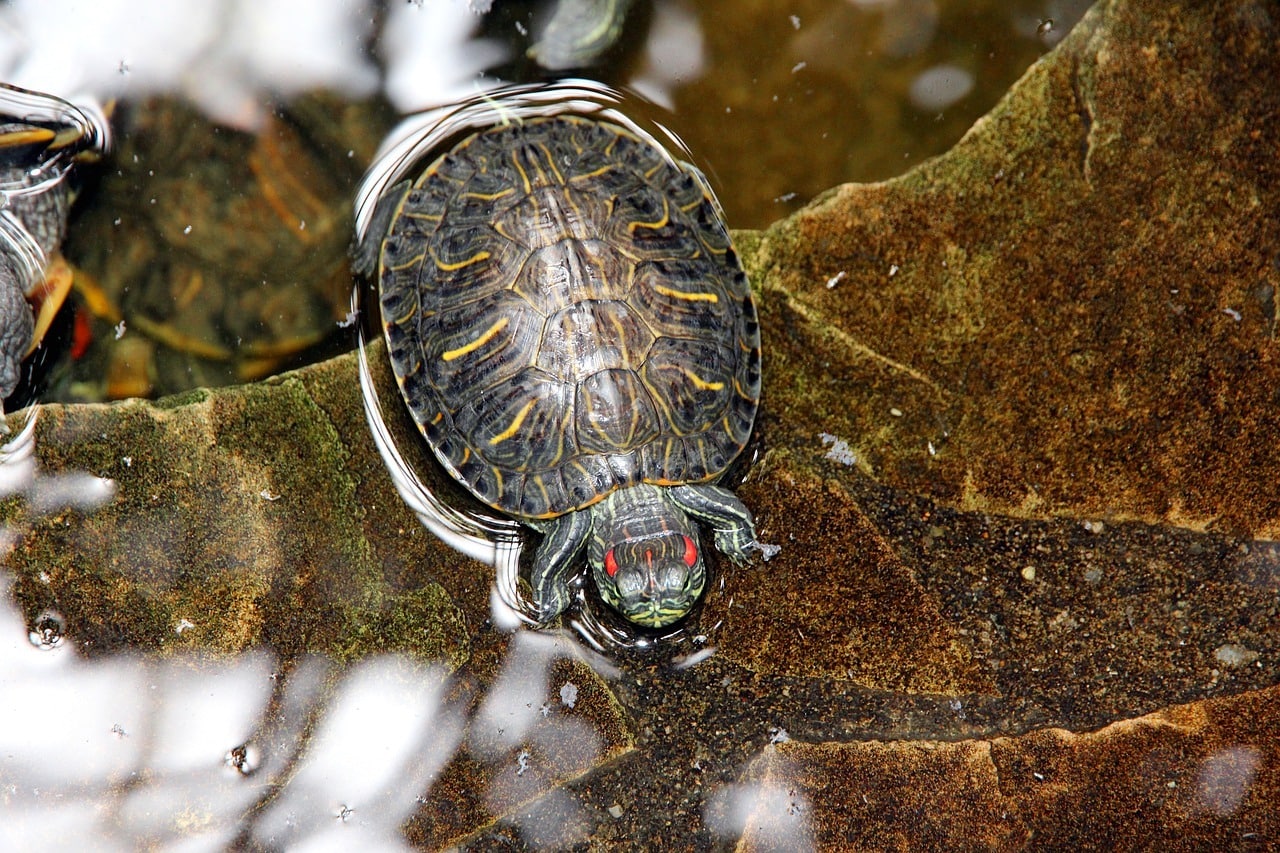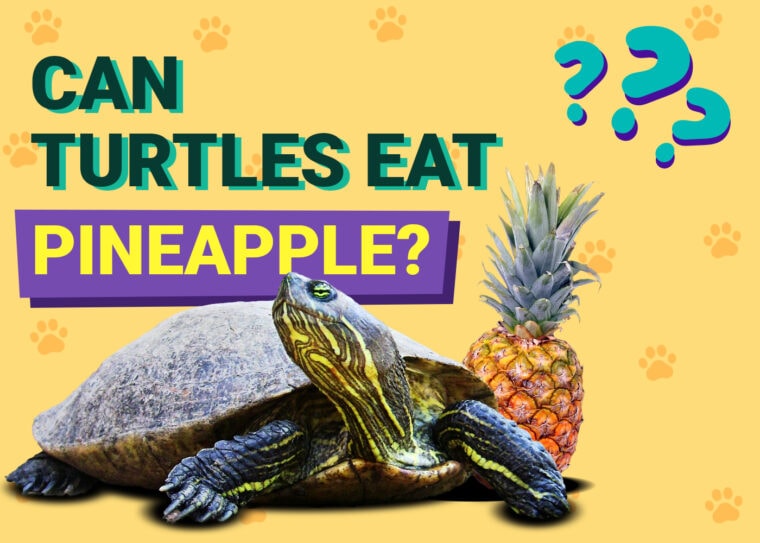
A fact that may be surprising to people is that certain species of turtles can live up to 50 years in captivity!1 However, this is only possible when turtle owners are committed to providing them with the best care throughout their lives. Understanding the nutritional needs of these fascinating reptiles is essential for their well-being and longevity. For example, most fruit should be fed sparingly to turtles due to their high sugar content. Also, not all fruit is safe for turtles.
But what about pineapple? Known for its tropical sweetness and vibrant flavor, this juicy fruit seems like a tempting treat to many creatures. So, can turtles eat pineapple? Yes, they can but as with most treats, moderation is essential.
Read on as we explore the potential benefits and risks of feeding this tropical fruit to your shelled companion, so you can make an informed decision about whether to include it in their diet.
Nutrition Facts and Benefits of Pineapple for Turtles
Pineapple contains various nutrients, including vitamins C and A, manganese, calcium, and dietary fiber. These nutrients are beneficial to humans and can contribute to a healthy diet. However, turtles have different dietary needs and digestive systems than ours. Since most species are omnivorous, their optimal diet should consist primarily of animal products and vegetables. They don’t require many fruits, as they get all their nutritional needs from their pellets, animal protein, and veggies.
That said, the vitamin A and calcium found in pineapple can be beneficial for pet turtles. These animals are prone to vitamin A deficiency,2 which can lead to loss of appetite, swollen eyelids and ears, lung infections, and even kidney failure. Adequate calcium intake helps prevent metabolic bone disease, a condition that can lead to a soft shell, muscle twitching, and bone fractures.
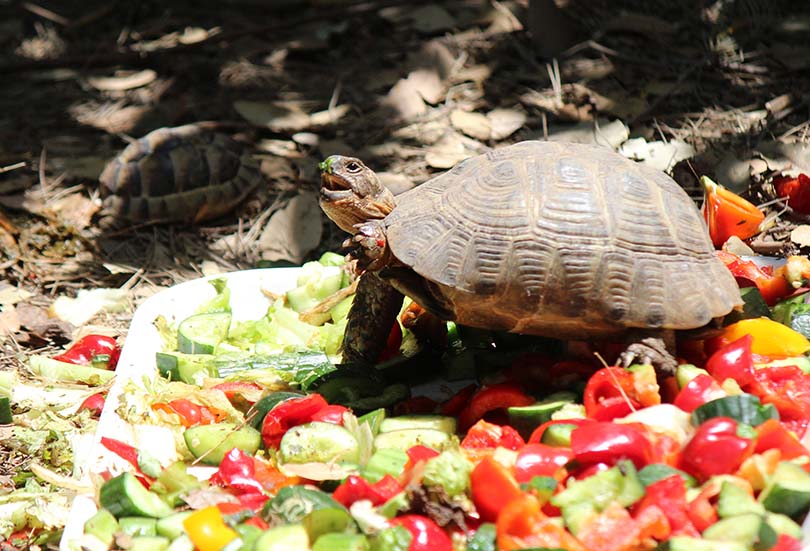
Potential Risks of Feeding Pineapple to Turtles
Although pineapple isn’t toxic to turtles and can be safely fed to them, there are a few things to keep in mind.
First, the quantity and frequency should be carefully monitored. This delicious tropical fruit should be offered as an occasional treat, rather than a staple food, due to its high sugar content. Excess sugar intake can lead to digestive problems and obesity in turtles, which can have devastating effects on their health.
Second, proper preparation of this fruit is crucial. It should be cut into tiny bite-sized pieces to avoid choking hazards. Remove the skin and core too, as these parts can be tough for turtles to chew and digest. Also, be sure to wash the pineapple thoroughly to remove any pesticides or residue that may be present.
Lastly, your turtle’s overall health condition should be considered. Turtles with pre-existing health issues like bladder stones may be more sensitive to certain foods. It’s always best to consult with a vet who specializes in reptiles before introducing any new food to your turtle’s diet!
How Much Pineapple Can You Feed Your Turtle?
Since fruit should make up no more than 5–10% of your pet turtle’s diet, a small piece of pineapple once a week is more than enough. Keep in mind that this tropical fruit is acidic and contains a large amount of sugar, so it won’t benefit your turtle if you overdo it. Worse, your picky pal could develop a sweet tooth for this yummy treat, causing it to forego veggies and other more nutritious foods from its regular diet.
What Other Fruits Can Turtles Eat?
There are plenty of nutritious and safe fruit options that you can offer your pet turtle on occasion. Great vet-approved picks include:
Note: The same rules apply no matter which option you choose: Remove pits and seeds, rinse thoroughly to remove pesticide residue, and cut fruit into small pieces to prevent your turtle from choking.
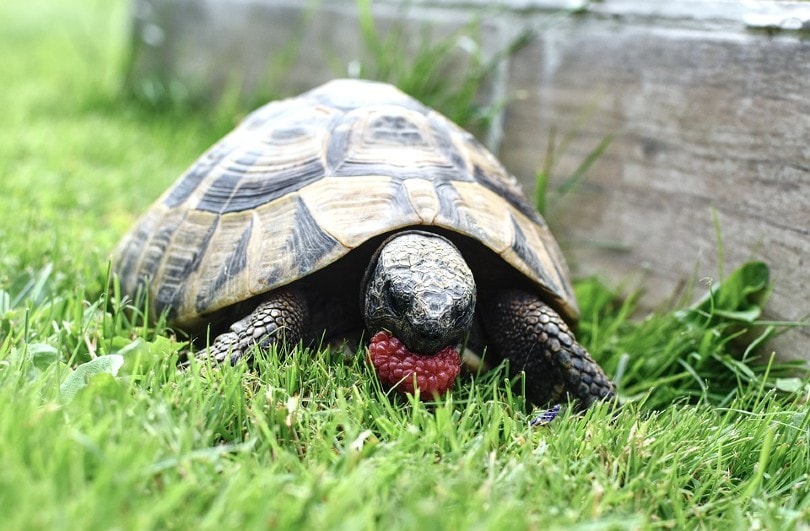
What Should Turtles Never Eat?
Although turtles have varying dietary needs depending on their species, certain foods should never be offered.
Conclusion
In short, while pineapple does offer a few nutritional benefits and can be an occasional treat for your reptile friend, it should never replace any of the essential components of an optimal turtle diet. As with most fruits and treats, moderation should always prevail. Most importantly, be sure to observe your turtle’s behavior closely with each new food introduction, in case it develops digestive issues like diarrhea or constipation.
Featured Image Credit: Kotcha K, Shutteerstock



